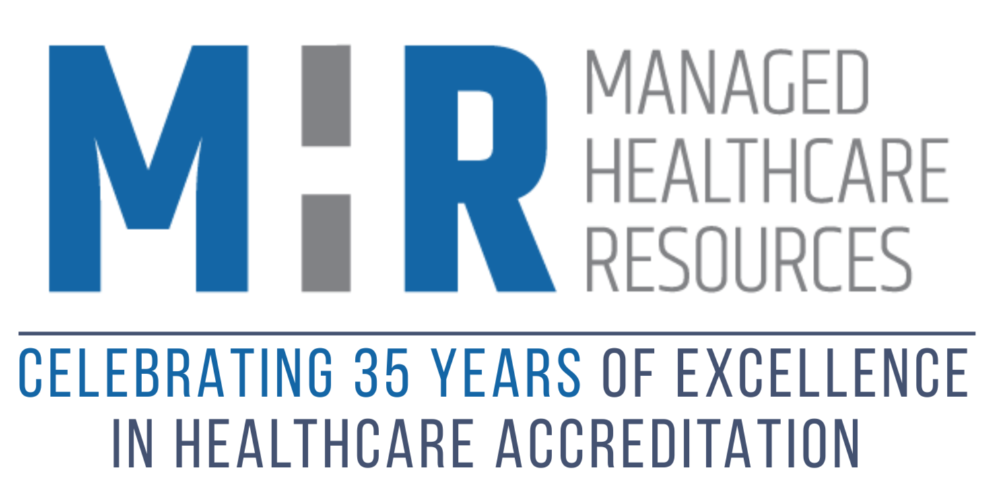
By Nancy Ross Bell, RN
Estimated time to read: 4 minutes
Results are in, and you are celebrating your grand success with your last NCQA Survey! With such success, you are planning a bit of a respite and would like to pick up on NCQA-related tasks in a few months. Right? WRONG!
MHR has observed that Complacency After a Survey is one barrier to sustaining accreditation.
Some organizations want to think of the time post-survey as their downtime or off-season. In reality, this is not correct. Many requirements must be completed annually in each 3-year accreditation cycle. For example, NET 3 B & C requires measurement of intervention effectiveness, which requires measures to be tracked and trended over a 3-year period. Additionally, measures under QI 3 and 4 under the 2024 standards require a similar 3-year cycle of measurement.
Who is Responsible for Sustaining Accreditation After a Survey?
Lack of Accountability is another barrier to sustaining accreditation.
Who is accountable for continuing the quality improvement cycle is just as important as the tools individuals need to identify opportunities, select interventions and measure outcomes.
Accountable people can be identified in multiple ways.
- In Analysis templates, add the person responsible for each intervention.
- List responsibilities for Accreditation in staff and management position descriptions within the organization’s staffing model.
- Describe responsible parties for implementation, oversight, and reporting of interventions within committee minutes or descriptions.
Tips for Quality & Accreditation Leaders
- Determine business owners and persons accountable for all interventions and for assessing outcomes.
- Maintain detailed work plans, timelines, and milestones that span your survey cycles, typically three years. Having a detailed plan with targeted dates helps the “continuous” cycle of improvement.
- Keep leadership apprised, at least quarterly, of progress and barriers.
- Schedule a review of all quality and HEDIS measures at least annually with your Quality Oversight Committee
What is Needed for QI 3 & QI 4 Under the 2024 Standards? Baseline Plus Two.
Data is collected annually from multiple sources, primarily HEDIS Health Plan Ratings measures and practitioner surveys, to analyze information exchanged between practitioners and across settings.
After data is collected, baseline performance results are established, opportunities are identified and prioritized, and interventions are selected.
After a baseline measure for all opportunities is established, two remeasurements are needed for each opportunity acted upon. Because measurements are done annually, there is no stopping your work of improving quality! Remember that annually is a 12-month period plus a 2-month grace period (12-14 months) (NCQA Glossary).
It is important to remember that for Renewal Surveys, the look-back period is 24 months, which is the timeframe of your two annual remeasurements. Keep in mind that a baseline measurement, analysis, and intervention precede each remeasurement (QI 3 C – Explanation)
Refer to your 2024 NCQA Standards for the Explanation of all standards and where Exceptions apply.
Important! Be Alert to NCQA’s Proposed Changes to QI 3 and QI 4 in the 2025 Standards
NCQA has proposed changes to QI 3 and QI 4 of the 2025 Health Plan Accreditation standards, in which Elements will be replaced, and performance on continuity and coordination of care measures will be demonstrated according to designated Health Plan Rating measures.
For organizations reporting HEDIS, scoring will be based on improving measures from a rating of 1 or Not Collected from its prior survey to a rating of at least 2. If all measures were not improved, then a score of “Not Met” is applied.
When submitting for a survey, NCQA will review the Health Plan Ratings score sheet for each of the years in the health plan’s look-back period and look for demonstrated improvement in HEDIS measures.
Some organizations are already using HEDIS measures for QI 3 and QI 4, and the principles of sustaining accreditation with ongoing quality monitoring, assigning accountability, selecting opportunities, implementing strong interventions, and integrating quality improvement practices into their business processes still hold true.
Where and How is Your Evaluation of Effectiveness Done?
For both the 2024 and 2025 standards, evaluation of effectiveness for each opportunity acted upon is done annually by qualitative and quantitative (Q&Q) analysis. After data is first collected and your baseline measurement is established, two annual remeasurements are required to analyze the effectiveness of your interventions.
Two re-measurements and an analysis of effectiveness are within your look-back period. Measures are trended from baseline and compared to external benchmarks, such as Quality Compass.
Trended results compared to benchmarks are reviewed after HEDIS results are submitted and discussed during a Quality committee meeting.
Remember to Incorporate Improvement Across Your Organization
Another barrier to sustaining accreditation is not Incorporating interventions to improve quality into the organization’s culture, business practices, and work processes. Sustaining accreditation with ongoing quality improvement cannot be left to chance.
For example, the HEDIS measure on Follow-Up After an Emergency Department Visit for Mental Illness–7 Days Total Rate (FUM) crosses over members in all product lines and warrants strong interventions to help ensure continuity and coordination of care between medical practitioners, between medical and behavioral practitioners, and across settings. Staff in case management, utilization management, customer care, and pharmacy benefit management are critical to sustaining NCQA Accreditation.
MHR’s Tools, Templates, and Training are Designed to Attain and Sustain Accreditation
MHR has a library of tools, templates, and training designed to not only attain accreditation, but also to sustain it. MHR Consultants will meet you where you are in your NCQA Accreditation cycle and advise on the strategy and items most suitable to your organization
Call to Action:
- Contact your MHR Consultant to discuss tools or training beneficial to your organization.
- Read our prior blogs on sustaining your NCQA Accreditation.
MHR follows a quality review process for all blogs. This blog on sustaining accreditation was reviewed by Kelsi M. Baird and Kimberly Carpenter Petit.
MHR: Driving healthcare quality one NCQA accreditation at a time
#NCQA



